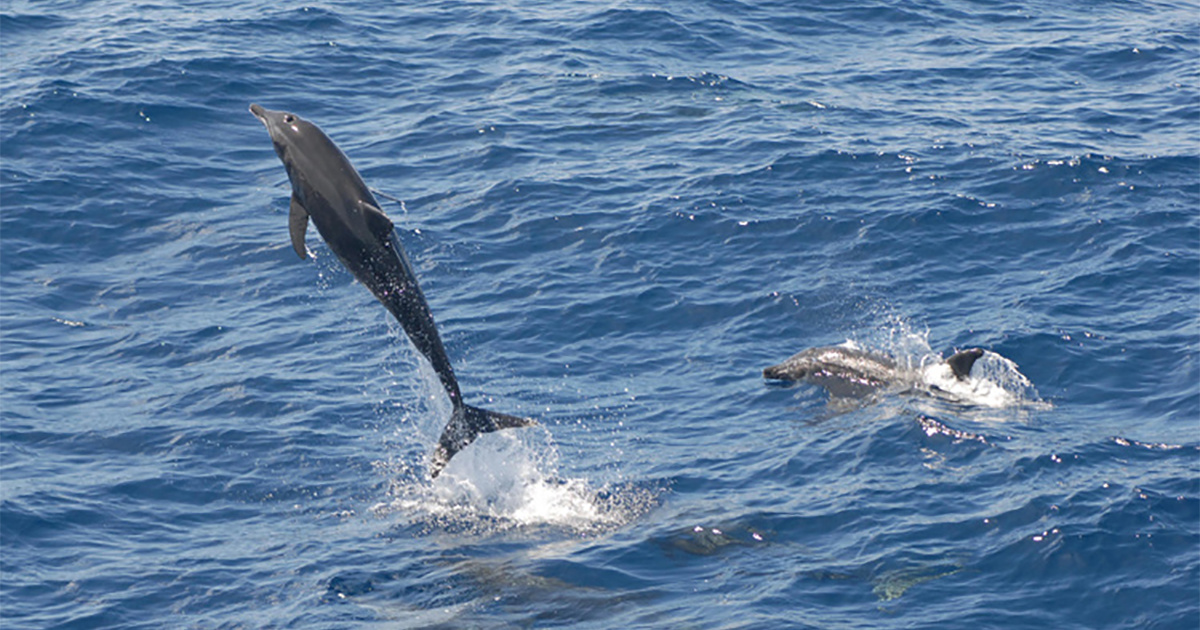
Scientists Discover Melon-Headed Whale and Rough-Toothed Dolphin Hybrid

A rare hybrid between a melon-headed whale and a rough-toothed dolphin (pictured) was discovered off the coast of Kauai. NOAA
Researchers have spotted the first ever hybrid between a melon-headed whale and a rough-toothed dolphin off the coast of Kauai, Hawaii, CNN reported Tuesday.
Despite its name, the melon-headed whale actually belongs to the Delphinidae family, along with killer whales, false killer whales, two species of pilot whales and oceanic dolphins.
It is only the third confirmed hybrid within the Delphinidae family born in the wild, The Associated Press reported.
Another Delphinidae hybrid, a cross between a false killer whale and an Atlantic bottle-nose dolphin named Kekaimalu, was born at Hawaii’s Sea Life Park in 1985.
“To know she has cousins out there in the ocean is an amazing thing to know,” Sea Life Park curator Jeff Pawloski told The Associated Press.
Pawloski said the discovery was a testament to the “genetic diversity of the ocean.”
Kekaimalu’s birth popularized the portmanteau “wholphin,” but researchers say that is not an accurate description for these dolphin hybrids.
“I think calling it a wholphin just confuses the situation more than it already is,” researcher Robin Baird, who helped write the study announcing the discovery, told The Associated Press.
The study, published last week, details the discovery of the hybrid in August 2017 as part of the marine mammal monitoring program funded by the U.S. Navy.
The research was conducted by the Washington State non-profit Cascadia Research Collective off of the Pacific Missile Range Facility near Kauai.
Researchers tagged a pair of melon-headed whales, only the second time ever that the mammals had been satellite tagged near Kauai, and noticed that one of them had the blotchy pigmentation and sloping forehead of a rough-toothed dolphin, CNN reported.
Genetic testing confirmed it was a hybrid.
Researchers speculate that the melon-headed whale travelling with the hybrid might be its mother.
Melon-headed whales normally travel in groups of 200 to 300, but these two traveled alone and socialized with rough-toothed dolphins.
Researchers hope to confirm their hypothesis when they return to the site this summer.
“If we were lucky enough to find the pair again, we would try to get a biopsy sample of the accompanying melon-headed whale, to see whether it might be the mother of the hybrid, as well as get underwater images of the hybrid to better assess morphological differences from the parent species,” Baird told CNN.
As exciting as the new discovery is, researchers were quick to point out that, even though hybrid animals can lead to the emergence of a new species, a single hybrid does not a new species make.
“There’s no evidence to suggest it’s leading toward anything like species formation,” Baird told The Associated Press.

 233k
233k  41k
41k  Subscribe
Subscribe 